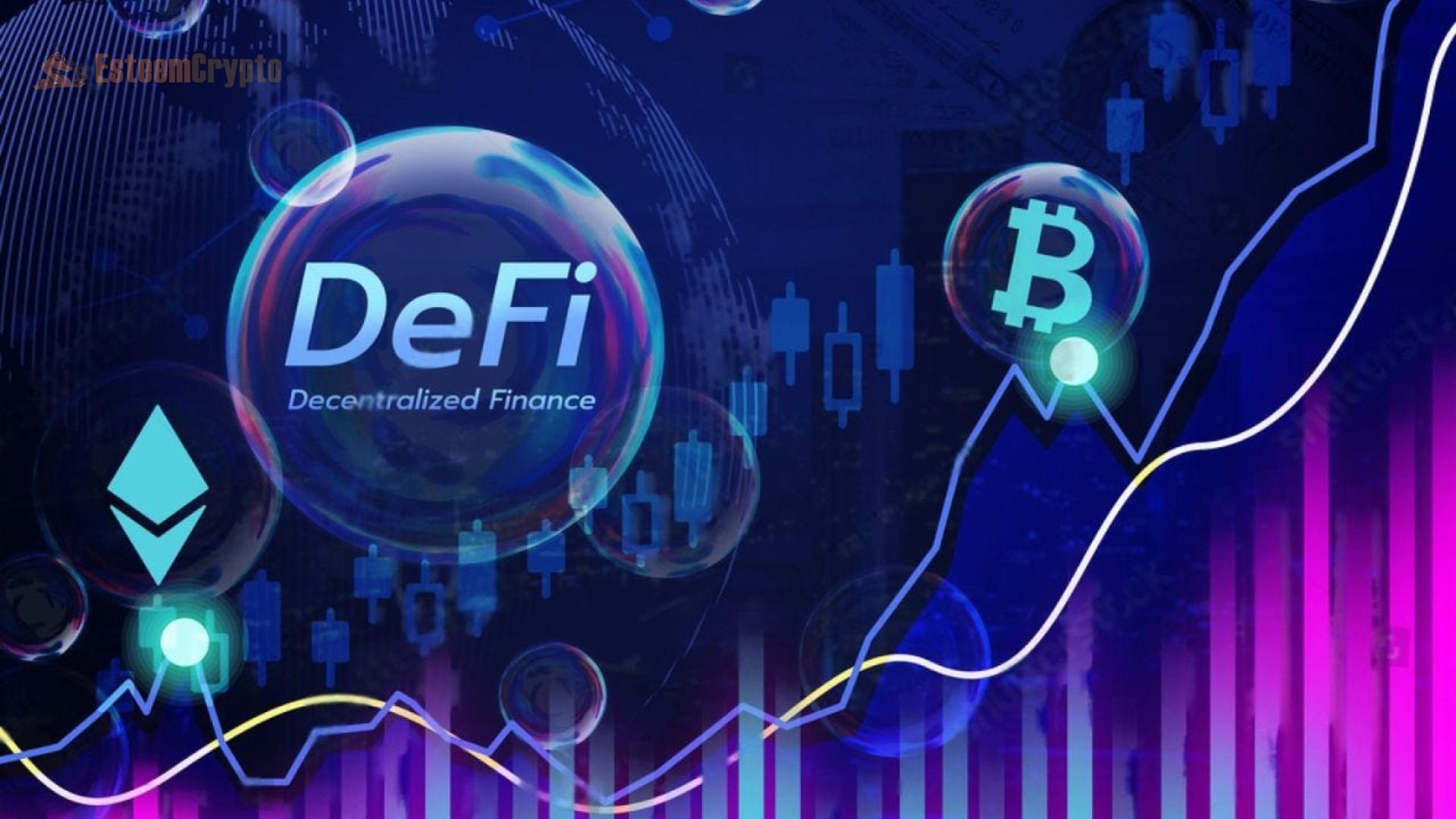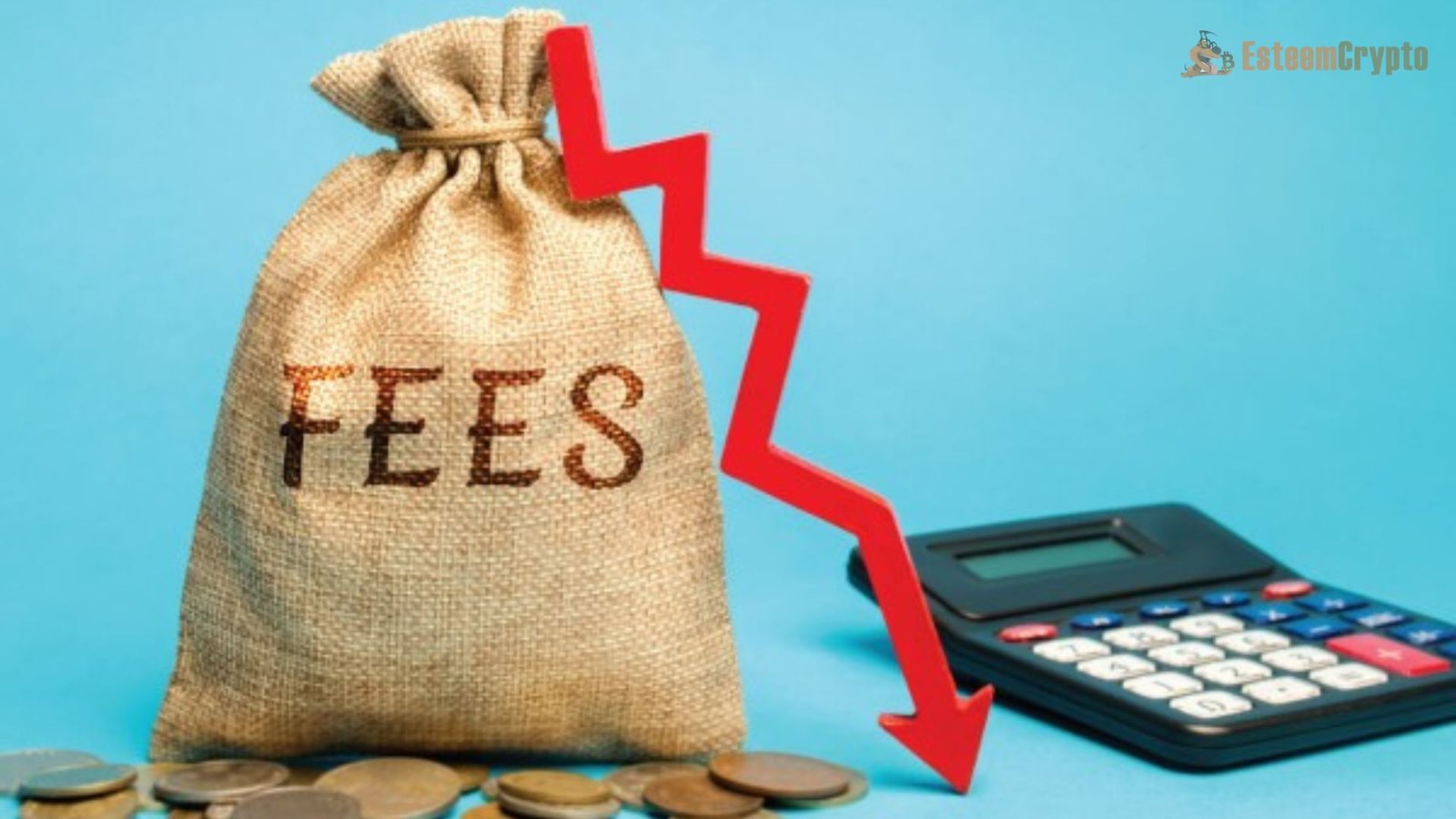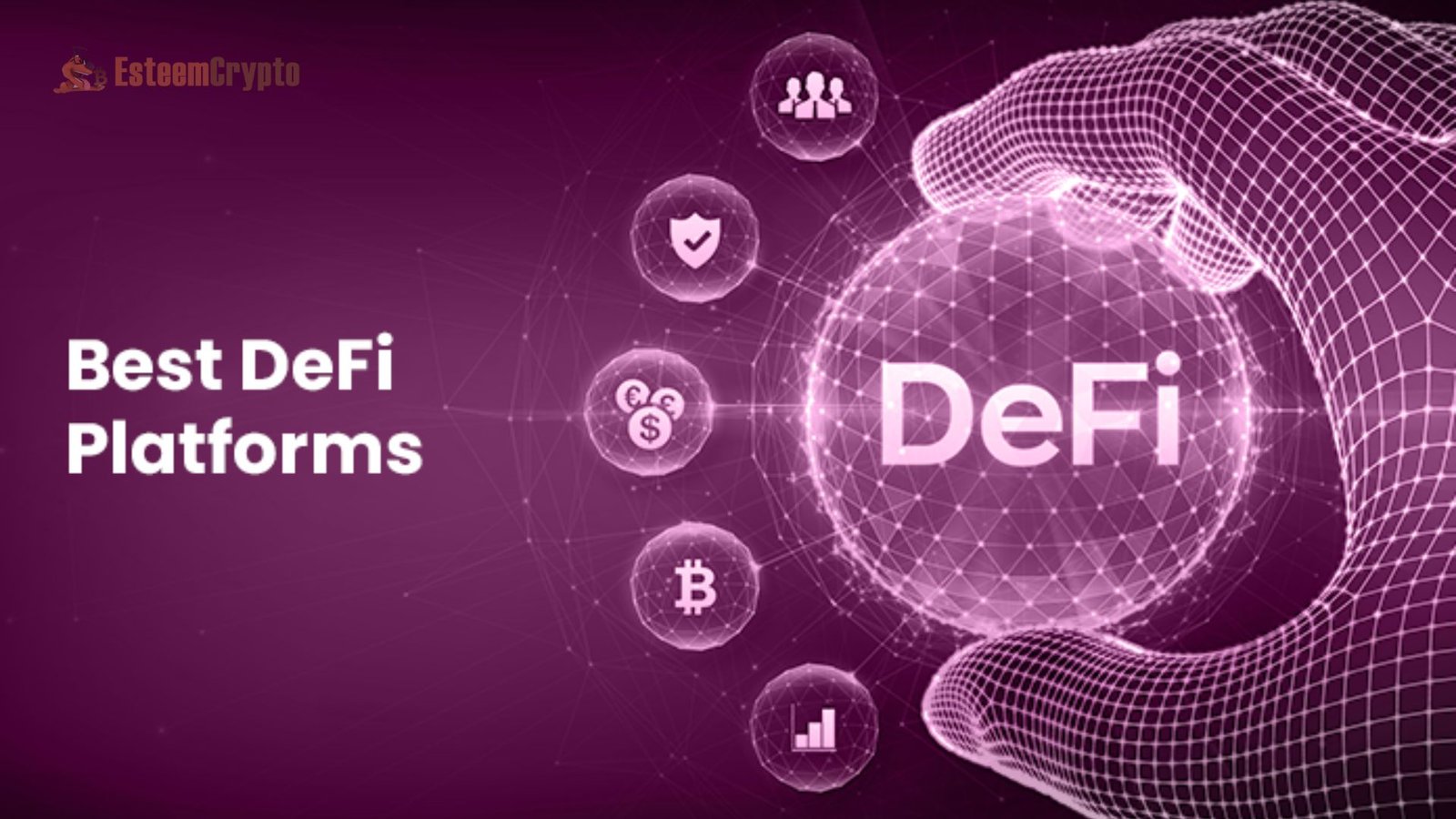The concept of decentralized finance (DeFi) is changing the face of banking in profound ways. The centralized financial systems that have controlled our transactions, lending, and borrowing activities for decades would supposedly end with its implementation. But DeFi provides an alternative—a blockchain-powered decentralized environment that does away with trust altogether. The DeFi trading platforms are an integral part of this revolution because they remove the intermediaries from purchasing, selling, and trading digital assets.
This is the perfect spot for you if you’re new to DeFi and want to know how these platforms function, how they vary from conventional exchanges, or where to begin. From defining DeFi trading platforms to investigating their advantages and disadvantages and how to maximize your use of them, this all-inclusive guide will cover it all.
Understanding DeFi
A proper understanding of DeFi is necessary before delving into DeFi trading platforms. Financial services and products that run on blockchain networks, most often Ethereum, without the participation of conventional intermediaries like banks, brokers, or even CEXs, are at the heart of decentralized finance (DeFi).
Centralized institutions, such as banks and brokers, mediate monetary transactions, lending, and trading in the conventional financial system. These businesses have a say in the timing, cost, and permitted transactions since they levy fees and manage the movement of assets.
However, DeFi eliminates the intermediaries and establishes a permissionless financial environment available to anyone. Instead, financial transactions and services are carried out on
What is a DeFi Trading Platform?
To avoid an intermediary and facilitate direct peer-to-peer (P2P) trading of cryptocurrencies and other digital assets, a DeFi trading platform facilitates these transactions online. Common examples of such systems include decentralized exchanges (DEXs) that run on blockchain networks like Ethereum, Binance Smart Chain (BSC), or Solana and are driven by smart contracts.
Trading platforms like DeFi do not keep your funds, unlike conventional centralized exchanges (CEXs) like Binance or Coinbase. On the contrary, they facilitate asset trading straight from the wallet, leaving you in complete command of your private keys and the safety of your money. For DeFi trading, this self-custody paradigm is a significant plus.
The Advantages of DeFi Trading Platforms
There are a lot of ways in which DeFi trading platforms are changing the trading and investment industry. Traders find them attractive because of the following features:
Decentralization and Transparency
The decentralized nature is a significant selling point of DeFi trading systems. All transactions are recorded on an immutable public ledger built on blockchain technology. Anybody, at any moment, may check the validity of a deal or trade because of this.
Because they run on decentralized networks, DeFi platforms are safer from manipulation, hacking, and regulatory inspection than centralized platforms. Plus, they provide more openness and responsibility as they are not run by just one company.
Lower Fees
Traditional centralized exchanges impose hefty fees for many services, including transactions and withdrawals. These costs may build up fast, particularly for traders who do it often. Conversely, DeFi systems usually provide more affordable prices due to their elimination of intermediaries and third-party services.
While the prices connected with DeFi platforms are sometimes cheaper than those of traditional exchanges, users should be aware that gas fees, also known as transaction fees, may still apply. Each blockchain network has its own set of fees.
Increased Accessibility
Anybody with a Bitcoin wallet and an internet connection can use the DeFi trading platform. This opens up the possibility of trading to individuals from all around the globe, regardless of their location or financial status. People without access to conventional banking services may find DeFi trading platforms more appealing because, in many instances, a KYC (Know Your Customer) process is not even necessary.
Complete Control Over Your Funds
The amount of control it gives is probably the most convincing argument for using a DeFi trading platform. Using a centralized exchange means trusting the exchange to keep your valuables secure. Trading on DeFi platforms is done straight from your wallet, giving you complete control over your assets. Because of this, there is far less chance of exchange hacks or platform failures causing money to disappear.
Innovative Financial Products
Buying and selling cryptocurrency is simply one of several financial services offered by DeFi platforms. Among these, decentralized protocols provide access to yield farming, staking, lending, borrowing, and liquidity providing. Users may borrow money, trade synthetic assets, or earn passive income through these services—all without giving any personal information or credit history.
Popular DeFi Trading Platforms
Many platforms have arisen, each providing a unique set of services and capabilities, thanks to the explosion of the DeFi ecosystem. In terms of DeFi trading platforms, these are among the most widely used:
Uniswap
Among the several DEXs available on the Ethereum network, Uniswap stands out as a significant player. Using it, consumers may trade several different ERC-20 tokens independently of any one authority. Instead of utilizing an order book, Uniswap executes transactions using liquidity pools, thanks to its automated market maker (AMM) technology.
Sushiswap
Staking incentives and governance tokens are two new features added to the fork of Uniswap called Sushiswap. Users can trade tokens without relying on a central exchange since it uses an AMM approach. Traders seeking passive revenue may find Sushiswap an appealing choice because of the extra incentives it gives liquidity providers.
Curve Finance
Regarding stablecoin trading, there is no better-decentralized exchange than Curve Finance. This platform is perfect for traders interested in stablecoins such as USDT, USDC, or DAI since it employs a novel automated market maker that reduces slippage for stablecoin transactions.
PancakeSwap
One popular alternative to decentralized exchanges (DEXs) built on Ethereum, such as Uniswap, is PancakeSwap, which runs on the Binance Smart Chain (BSC). Similar features, such as token swaps, liquidity provision, and yield farming, are offered by another platform employing an AMM model.
Risks of DeFi Trading Platforms
The advantages of DeFi platforms are numerous, but they are not risk-free. Before you start trading DeFi, you should know about these significant risks:
Smart Contract Vulnerabilities
Although they serve as the foundation of DeFi systems, smart contracts are still susceptible to errors and security flaws. Bad actors can steal money from you if a smart contract isn’t well-written and has bugs. Verify that the platforms you utilize have been thoroughly examined and are credible.
Impermanent Loss
Providing liquidity to a trading pair causes impermanent loss if the value of the assets in the pair varies. Your assets’ total worth might drop as a result of this. Although liquidity providers have the potential to earn fees, they also run the risk of losing money if asset values go up or down.
Market Risk and Volatility
Extreme volatility is a hallmark of DeFi markets. Rapid price fluctuations might cause you to lose substantial money if you aren’t cautious. Keeping tabs on market circumstances and appropriately adjusting your risk management strategy is essential to any trading strategy.
Regulatory Uncertainty
Since DeFi is still in its infancy, the regulatory landscape around it is murky in many nations. Future restrictions may affect the legality or usefulness of specific platforms or services, even if DeFi systems are less vulnerable to government control because of their decentralized structure.
How to Get Started with DeFi Trading Platforms
This is a detailed tutorial on how to begin using DeFi trading platforms so you can jump right in:
Set Up a Cryptocurrency Wallet
A cryptocurrency wallet compatible with DeFi interactions is necessary to utilize a DeFi platform. A few well-liked choices include Coinbase Wallet, MetaMask, and Trust Wallet. Using one of these wallets, you may safely store your digital assets and engage with dApps on different blockchain networks.
Fund Your Wallet
You must add cryptocurrency to your wallet after you have established it. Having Ethereum (ETH) or another token supported by most DeFi platforms is required for trading or providing liquidity. Exchanges such as Binance, Coinbase, and Kraken allow you to buy cryptocurrency and then move the funds to your wallet.
Choose a DeFi Trading Platform
After that, decide which DeFi trading platform would help you achieve your objectives. Uniswap and Sushiswap are two platforms that come to mind when considering trading tokens based on the Ethereum network. For those who prefer a Binance Smart Chain platform, PancakeSwap is an excellent option. Verify that the platform is compatible with the tokens you intend to trade.
Read More: Regulating DeFi: Decentralized Finance and Blockchain Challenges
Start Trading or Providing Liquidity
After linking your wallet to the site, you can begin trading, staking, or offering liquidity. Know what you’re getting into and think about starting small until you are familiar with the platform to minimize danger.
Conclusion
Pioneers in the decentralized finance movement, DeFi trading platforms provide investors and dealers with a new channel to acquire assets and services directly from the source, cutting out the intermediaries. There is a wealth of opportunity on DeFi platforms for anybody interested in digital asset trading, passive income, or novel financial product exploration. It is critical to exercise caution while using these platforms, to be aware of the potential dangers, and to conduct thorough research before participating.
We may anticipate the emergence of even more sophisticated features and capabilities in the DeFi area as it develops further, further democratizing access to money and empowering individuals globally.
FAQs
What is Decentralized Finance (DeFi)?
DeFi eliminates intermediaries like banks, enabling blockchain-to-peer transactions and decentralized financial services.
What distinguishes DeFi trading platforms from centralized exchanges?
DeFi platforms allow users to trade directly from their wallets, offering complete control over funds, unlike centralized exchanges that manage your assets.
What are the advantages of DeFi trading platforms?
DeFi platforms provide lower fees, greater transparency, accessibility, and control over assets, as well as innovative financial services like staking and lending.
What are the risks of using DeFi trading platforms?
Risks include intelligent contract bugs, impermanent loss, market volatility, and regulatory uncertainty that could affect platform stability and asset security.
How do I start using DeFi trading platforms?
Please set up a crypto wallet, fund it with tokens like Ethereum, choose a DeFi platform, and begin trading or providing liquidity while managing risks.












